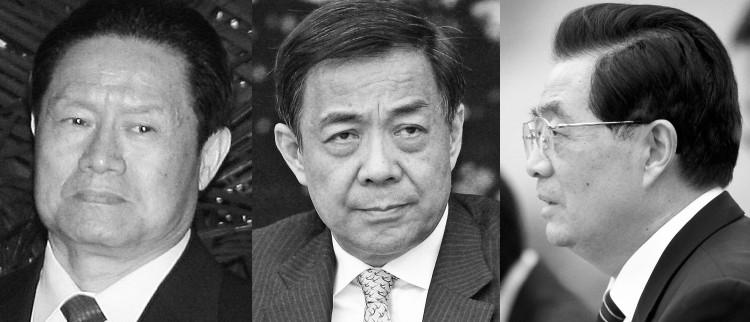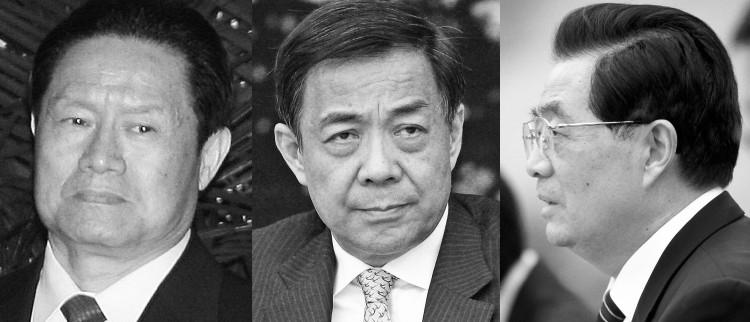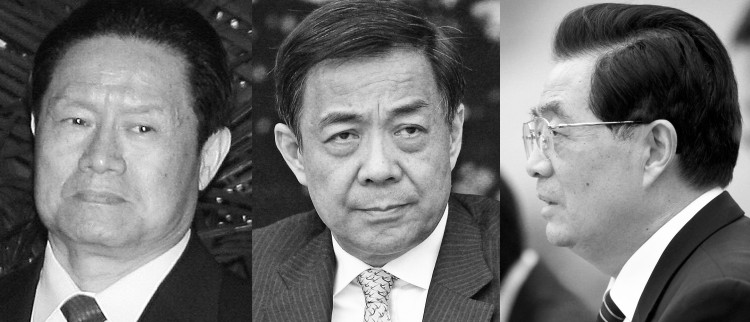Responsibility For Persecution Dogs CCP Leaders
The fear of being held responsible is driving what may be one of the bitterest succession battles in the history of the Chinese Communist Party(CCP.)

(Left to Right) Zhou Yongkang, Secretary of the Chinese Communist Party's Central Political and Legislative Committee, in 2007; Bo Xilai, Secretary of Chongqing Municipal Committee of the Communist Party of China in March 2011; Chinese Regime paramount leader Hu Jintao at a meeting with EU leaders in the "Great Hall of the People" in Beijing on February 15. Left to Right: Teh Eng Koon/AFP/Getty Images, Feng Li/Getty Images, and How Hwee Young/AFP/Getty Images
|Updated:






